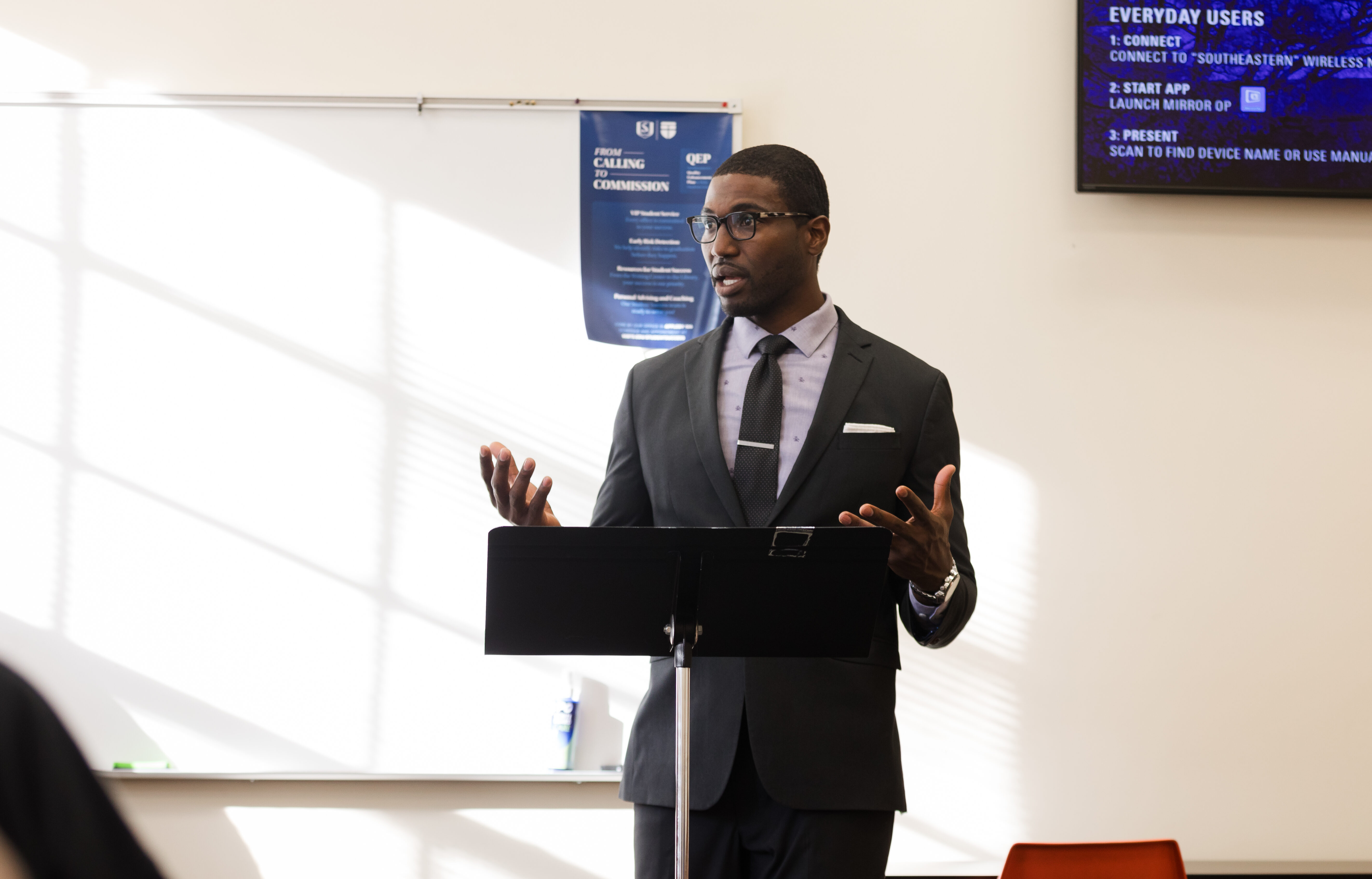What are the costs of such convenient access to entertainment and information? One cost is unrestful “rest.” Men and women have a limited ability to process information well. Access to massive amounts of information via technology characterizes our culture and often disrupts the time we set aside for rest. Three ideas can help Christians pursue true, biblical rest in a world of information overabundance.
1) Admit Information Overload
Christians should carefully consider their cultural context and critically examine cultural messages they encounter. In his book, Technopoly: The Surrender of Culture to Technology, social critic and academic Neil Postman examines how technology impacts societies. He posits that the United States is a technopoly, which he defines as the “deification of technology, which means that the culture seeks its authorization in technology, finds its satisfaction in technology, and takes its orders from technology.”[1] An uncritical, all-encompassing embrace of technology characterizes technopoly. Postman uses the religious term “deification” (attempting to make a god out of that which is not God) to describe the far-reaching effects of technology on such a culture.
Postman further notes that technopoly severs the link between information and human purpose. He writes that “information appears indiscriminately, directed at no one in particular, in enormous volume and at high speeds, and disconnected from theory, meaning, or purpose.”[2] Postman wrote these words in 1992 when floppy disks held 1.44 MB and slow dial-up internet connections were the norm. How much more apt are his words in a day when the average phone holds gigabytes of data and enables instantaneous access to information?
A major threat to true rest is the cultural context in which we live. The “deification” of technology, the high levels of satisfaction we find in it, and the massive amounts of information at our fingertips, all serve to create busy minds constantly distracted.
2) Limit Exposure to Information Bombardment
Postman describes a technopoly as a “peek-a-boo world where now this event, now that, pops into view for a moment, then vanishes again.”[3] The age of the smartphone is correctly described as a “peek-a-boo world” where distraction reigns.
During times of rest, Americans often pull out their smartphones and play peek-a-boo with a news app, then a gaming app, then the email app. This goes on and on until, far from achieving rest, one’s mind is pulled in many disparate directions.
Protecting oneself from the bombardment of information so prevalent in our culture is vital for true, biblical rest. Practically, this may look like physically placing your phone in another room or removing apps that are most distracting. It may look like bringing a physical book with you and reading the book instead of scrolling aimlessly. It may look like setting your status as “away” on your work email outside of working hours each evening. Determining effective strategies that help limit exposure to distracting information is key to resisting technopoly and resting in the Lord.
3) Continually Return to God’s Word
Technopoly leads to “a general breakdown in psychic tranquility and social purpose” and “without defenses, people have no way of finding meaning in their experiences.”[4] For Postman, religion acts as a control mechanism (or defensive tool) by which people can properly analyze information and find meaning. The moral framework of the Bible is particularly important for understanding and evaluating information in a coherent manner.
By submitting the immense amount of information and multitudinous, cultural messages to the authority of God’s word, the believer can find rest—psychological, physical, and spiritual. God commanded the Israelites to rest (Exodus 20:8-11) and Jesus encouraged the disciples to rest (Mark 6:31). The Lord knows that humans require rest.
By meditating on God’s word, Christians help fight the distractions inherent in modern technology. Scripture also serves as the objective standard by which believers analyze information. It is the basis for appropriately dealing with the enormous amounts of information we encounter through technology.
The Bible reorients our minds and hearts to the things of the Lord, not the things of the smartphone. This is key to achieving true, biblical rest in any culture—especially the technopoly in which we live.





No comments have been added.